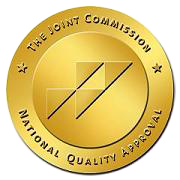Do You Have To Be Underweight To Have An Eating Disorder?
Read the Full Article from MSN Health Digest
All of us can relate to having some insecurities about our bodies, which is quite normal. A problem arises when our insecurities become so loud that they affect our thoughts and actions in an unhealthy way. For example, eating disorders have become more common in recent years. A 2019 review published in The American Journal of Clinical Nutrition noted a significant increase in eating disorder prevalence from 2000 to 2018.
It's equally concerning that disordered mindsets about eating appear to be influencing young children. According to the National Association of Anorexia Nervosa and Associated Disorders, 42% of girls in first to third grade express wanting to be thinner and 81% of 10-year-old children have fears about being overweight. Eating disorders don't discriminate and can affect anyone, including men as well as individuals in the LGBTQ+ community.
Coming to a greater understanding of what contributes to the development of eating disorders is imperative, as eating disorders are the second most deadly mental illness after opioid overdoses. As explained by the Eating Recovery Center, there are many contributing factors to eating disorders, including genetic, environmental, psychological, and sociocultural aspects. They could appear in multiple generations of a family line, or be exacerbated by societal pressures and social media.
